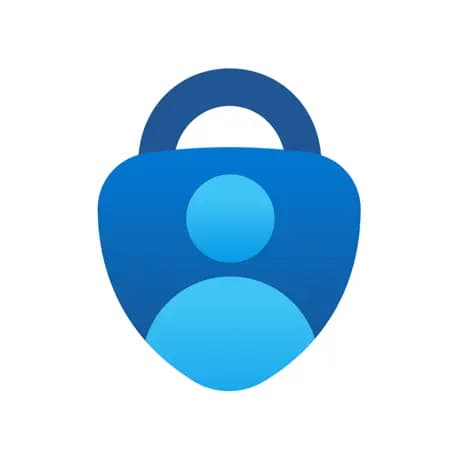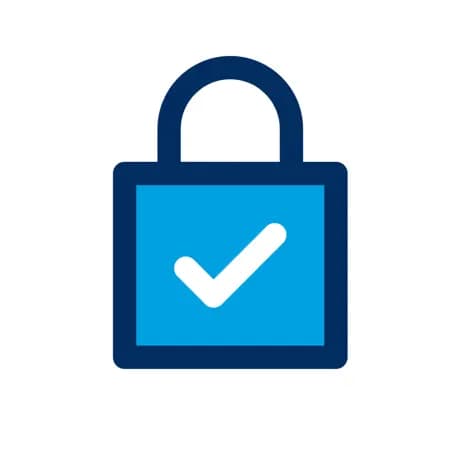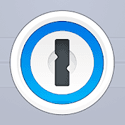Gladly, there are numerous best authenticator apps out there coming from some of the best and most dependable companies. These two-factor authentication apps use multiple layers of security to make your security system robust and help you secure your walls from any unwanted penetration.
Therefore without any await, let’s check out some of the best apps for authenticator that you can use to protect your enterprise systems and personal devices.Read Less
List of Best Free Authenticator Apps of 2026
Table of Content
- 1. Google Authenticator
- 2. Microsoft Authenticator
- 3. TOTP Authenticator
- 4. Twilio Authy
- 5. 2FA Authenticator
- 6. Duo Mobile
- 7. SalesForce Authenticator App
- 8. Aegis Authenticator
- 9. 1Password
- 10. LastPass
- What is the entire history of mobile authentication and how did it become a reality?
- What is two factor authentication?
- What is multi-factor authentication?
- Key Differences Between 2FA and MFA
- What are the different processes associated with two-factor authentication and multi-factor authentication?
- What are the leading companies in the domain of end-to-end authentication for mobile devices?
- Wrapping Up!
- FAQ
Recent Topics
Related Topics
Tech Specifications
Metrics Android iOS Latest Version 7 4.2.1 Device Supported Android 6.0 and up iOS 14.0 or later Subscription Free Free Top Features
- The app is used to generate a two-step verification code
- The code provides an extra layer of security to internet accounts
- This app generates codes on the registered device
- Used to log in into apps like Gmail, Facebook, and Instagram among others
More about product
As the name suggests, this one of the best amongst the list of Google apps is used to generate and verify codes. The app is used for a specific task called “two-step authentication”. Two-step verification requires a code even after inserting the password into supporting applications such as Gmail, Facebook, etc.
Thus, Google Authenticator gives the registered device a code with the help of its app and the code enables access to the account. For extra security of the data, this app is a top-notch option.
Tech Specifications
Metrics Android iOS Latest Version 6.2412.8087 6.8.20 Device Supported Android 8.0 and up iOS 15.0 or later Subscription Free Free Top Features
- It autofills passwords for you
- OTP doesn’t require you to be connected to a network
- Add multiple accounts to your app
- Import passwords from other password managers
More about product
Microsoft Authenticator is another great authenticator app for PC that can also be used along with smartphones. It simplifies and secures online sign-ins with versatile authentication options like multi-factor authentication (MFA), passwordless logins, and password autofills. In addition to this, the user also gets account management features for Microsoft personal, work, or school accounts.
The mobile authenticator app also provides features like password authentication which lets you use your phone and not the password. The user simply needs to enter their username, and after this best authentication app allows login with fingerprint, face ID, or PIN.
Microsoft Authenticator also syncs passwords by using your personal Microsoft account, thereby, making it a default autofill provider. Access and autofill passwords with secure multi-factor authentication. This verification app is incredible for work and school accounts. Microsoft Authenticator also supports single sign-on, streamlining access to various Microsoft apps once you've verified your identity.
In essence, Microsoft Authenticator is a great 2 factor authentication offering a user-friendly solution for securing and managing your online accounts with diverse authentication methods tailored to personal, work, or school use.
Top Features
- Back up your 2FA accounts easily
- Enjoy the dark mode
- Inbuilt search feature
- Multi-platform support
More about product
Introducing TOTP Authenticator, this best two factor authentication app is an ultimate solution for fortifying your online security with ease. The app offers a streamlined approach to safeguarding your digital presence through the implementation of 2-factor authentication (2FA). By seamlessly integrating best-in-class security practices with a user-friendly experience, this one of the best authenticator apps ensures your accounts remain impenetrable against potential hackers.
The 2 factor authentication application generates one-time tokens on your device, serving as an additional layer of protection in conjunction with your password. Enabling two-factor authentication for your provider is a breeze – simply access your account settings, scan the QR code provided, and you're good to go.
Additional to all this, the third party authentication app gives cloud synching capabilities that effectively backup your data. It also offers a paid chrome extension that can effortlessly push your codes. Furthermore, you get a dark theme, multi-platform support, multi-device usage, unlimited account support, and a lot more.
With TOTP Authenticator, one can embark on a journey of enhanced online security. It would ensure the protection of your diverse online accounts with its robust features and comprehensive support.
Top Features
- Encrypted backups on cloud
- Multi-device synchronization with tablet and smartphone
- Generate token offline
- Multi-factor authentication for Facebook, Dropbox, Gmail, etc.
- 2FA security for bitcoin protection
- Encrypted backups on cloud
More about product
Authy is a free authenticator app for PC that is also downloadable to your mobile device. This one of the highly recommended apps brings advanced authentication and convenience to your Android device. This ensures a robust security for your accounts. This best two factor authentication app also provides an additional layer of defense against hackers using 2-step verification token.
The 2FA authenticator app stands out because of its incredible multi-factor authentication features. The best MFA (multi-factor authentication) app provides cloud backups using the same algorithms trusted by banks and NSA for data protection from hackers. The authenticator app for PC comes with multi-device synchronization. This gives the user the capability to add devices to your account, and automatically synchronize 2FA tokens.
Additionally one gets offline security, comprehensive support, and bitcoin protection (for Coinbase, CEX.io, BitGo). Twilio is an MFA authentication app that gives out shameless, secure authentication experience. An experience that goes beyond conventional go-to solutions for individuals and companies alike.
Top Features
- Added protection layer with passcode & biometric
- Syncing capability across mobile devices
- Supports multiple language
- Easy token restore capability with backups
- Offer open-source, transparency, and a community
- Added protection layer with passcode & biometric
More about product
2FAS is amongst the best authenticator apps that offers the simplest method to implement two-factor authentication. The 2FA authenticator app ensures your identity is verified and your logins are securely protected from cyber threats. This all-in-one app is not only user-friendly but also comes at no cost!
Considered the world's most secure 2FA app, this mobile authenticator app prioritizes your security with features like easy token restoration through backups and the option to add an extra layer of app protection using your passcode or biometrics. This best two factor authentication app is open-source, transparent, and community-driven, instilling trust in its users.
Your privacy is paramount with 2FAS. The 2-factor authentication app seamlessly syncs across your mobile devices, sporting an intuitively designed interface. The best free authenticator app introduces one-tap authentication with handy 2FAS Browser Extensions and supports multiple languages.
2FAS keeps things simple by working offline and refraining from storing any passwords or metadata. It lets you enjoy 100% anonymous use without requiring an account. With 2FAS, you're not just getting a reliable two-factor authentication solution, but a secure, private, and straightforward way to fortify your online presence.
Top Features
- Make logins more secure
- Receive notifications for easy one tap login
- Use it for apps and web services that make use of passcodes
- Add third-party accounts anytime
More about product
Duo Mobile is your key to enhancing login security using two-factor authentication service. Designed to fortify your logins, this authentication application goes beyond the traditional username and password combination, generating secure passcodes for added protection. Compatible with your iPhone, iPad, or Apple Watch, Duo Mobile offers a seamless and secure login experience.
One of the standout features of this 2FA authentication app is its ability to generate passcodes for login, providing an extra layer of security to your accounts. Moreover, the application supports push notifications, allowing for quick, one-tap authentication directly from your Apple devices.
Not limited to just Duo accounts, the best two factor authentication app extends its functionality to manage two-factor authentication for various applications and web services that utilize passcodes. The versatility of this one of the best authenticator apps ensures that your online presence across multiple platforms is consistent and fortifies against potential security threats.
With Duo Mobile, the user can experience the next level of security because of its user-friendly interface, secure passcode generation, and efficient push notifications that adds an additional layer of protection.
Top Features
- Added layer of multi-factor authentication
- Use mobile phone for verification
- Push notifications to approve or disapprove activity
- Mobile device location for automatically approving account
- One-time verification for offline use
- Added layer of multi-factor authentication
More about product
Salesforce Authenticator is another authenticator app for PC that adds an extra layer of protection to your online accounts through multi-factor authentication, commonly known as two-factor authentication. This makes sure that only you can access your accounts by requiring verification on your mobile device when logging in or performing crucial actions. The best two factor authentication app sends a push notification, allowing you to approve or deny the activity with a simple tap.
For added convenience, Salesforce Authenticator can leverage your mobile device's location services that can automatically approve trusted account activity. Additionally, the best authenticator app generates one-time verification codes for use when you're offline or facing connectivity issues. Coming from the house of Salesforce, it is a trustworthy product because of the excellent product acumen of the company. This not only increases its credibility but also makes it a dependable solution.
Make the most of Salesforce Authenticator that enhances the security of all your online accounts supporting time-based one-time passwords (TOTP). Any service that allows multi-factor authentication through an "Authenticator app" is compatible with Salesforce Authenticator, providing you with a comprehensive solution to safeguard your digital presence.

Aegis Authenticator
Top Features
- Free and open source
- Secure
- Compatible with Google Authenticator
- Material design with multiple themes
More about product
Aegis Authenticator is a free and open source app to manage your 2-step verification tokens, thereby, enhancing the security of your online services. Aegis stands out for its compatibility with both the HOTP and TOTP algorithms, making it widely applicable and interoperable with thousands of services. Notably, any web service that supports Google Authenticator will seamlessly integrate with Aegis Authenticator.
With this one of the best authenticator apps, security is paramount with the usage of robust encryption. All one-time passwords are stored in a vault encrypted using strong cryptography. Users are encouraged to set a password for an added layer of protection. For convenience, the best two factor authentication app also supports features like biometric unlock, allowing users with fingerprint or face unlock capabilities to access their vault securely.
Making the transition seamless, the 2FA authentication app simplifies the switch by importing entries from various authenticator apps, such as Authenticator Plus, Authy, FreeOTP, FreeOTP+, Google Authenticator, Microsoft Authenticator, Steam, TOTP Authenticator, and WinAuth.
With features like screen capture prevention, tap to reveal, and multiple themes, this best authentication app delivers a user-friendly, secure, and versatile solution for managing 2-step verification tokens, ensuring the utmost protection for your online accounts.
Top Features
- Puts passwords in place by creating strong & unique & memorizable pass-phrases for your online accounts (family and friends)
- This most popular iPhone app lets you access the password information on your smart devices and computers
- Users can organize everything with dozens of categories like credit cards, logins, addresses, bank accounts, addresses, driver’s license,
- passports and many more
- Arrange all the information with favorites and tags
- You can add custom fields to store extra information like URLs, and security questions
- Users can use Spotlight to search for the information they need
- The app performs on end-to-end encryption
- Safest option of Face Unlock
- Two-factor authentication for extended protection
- Being one of the best iPhone apps for free, it helps share documents and passwords safely with teammates and family members
- Puts passwords in place by creating strong & unique & memorizable pass-phrases for your online accounts (family and friends)
More about product
1Password is the top free iPhone app that acts as a password recaller for you. It’s one of the best iPhone apps that keeps all your passwords protected and safe behind a single password which only you know. It’s a password manager which asks you to add a password and later convert it through the password generator to make it stronger which makes it less prone to hacking.
Tech Specifications
Metrics Android iOS Latest Version 6.28.2.14955 6.29.0 Device Supported Android 12 and up iOS 16.0 or later Subscription Free (In-App Purchases) Free (In-App Purchases) Top Features
- Generates six digit code every 30 seconds
- Push notifications for one tap approval
- Automated setup via QR code
- Add multiple accounts
- Generates six digit code every 30 seconds
More about product
LassPass Authenticator is a hassle-free solution that provides two-factor authentication. It not only secures the LastPass account but also protects the other supported apps. With just one-tap verification and secure cloud backup, this one of the best authenticator apps can give you robust security.
The mobile authenticator app elevates your account by putting an additional layer that ensures that your password isn’t compromised. The best 2 factor authentication app simplifies the process, thereby, allowing you to mark devices trusted. It exempts them from code prompts while maintaining account protection.
The authenticator app for PC is a straightforward tool to use with multifactor options. The third party authentication app has the ability to empower your digital security. It offers a user-friendly experience, multiple account support, and the peace of mind of two-factor authentication.
What is the entire history of mobile authentication and how did it become a reality?
The history of mobile authentication is a fascinating journey that reflects the evolution of technology and security concerns. To tell you a little bit more about the tale, here’s the history of mobile authentication in a concise manner:
1. Early Days of Mobile Devices (1980s-1990s)
The advent of mobile phones started in the 1980s where these devices were primarily used for voice communication. The security used was minimal and it often involved simple PIN codes that prevented unauthorized use.
After that the SMS (Short Message Service) service started which was introduced in the 1990. Consequently, the need for authentication started to increase but the associated methods remained basic.
2. Introduction of Smartphones and Basic Security (Early 2000s)
With the introduction of early smartphones, mobile devices began to become a lot more sensitive to data. After this, PIN codes and alphanumeric passwords became a standard way for accessing smartphones and authentication. These methods were simple but provided a basic level of security.
3. Enhanced Security Features (Mid-2000s to Early 2010s)
After the introduction of Android in the year 2008, the pattern lock offered a much user-friendly way of securing devices. This was when services started to implement 2FA which was often used for SMS or email . This enhanced security for online accounts that were accessed using mobile devices.
4. Biometric Authentication (Mid-2010s)
In the year 2012, Apple came with iPhone 5S which was popularized for its fingerprint scanning (Touch ID) feature. This became the beginning of biometric authentication for unlocking smartphones and authenticating purchases. Some time after with a lot of skepticism initially, facial recognition became more widespread with the advancements in camera technology and AI.
5. Advanced Biometrics and Multi-Factor Authentication (Late 2010s to Present)
After much simpler versions of authentication, the smartphone world was introduced to multiple advanced authentication features. For instance, Samsung Galaxy Note 7 came with Iris Scanning, multi-factor authentication, and behavioral patterns of the user aka behavioral biometrics.
6. Integration with Other Technologies
Later on came the time of NFC and Bluetooth. This used proximity based authentication for various applications for payments and smart locks. In fact, wearables started to play a role in the authentication process by often pairing it with smartphones.
7. Future Trends and Developments
If we start talking about future trends, improving the accuracy and security of biometric systems will be laid back on advanced AI and machine learning. In fact, we have blockchain and other decentralized technologies that are being explored for secure and user-controlled authentication. This became a reality because of the different regulatory influence of GDPR, CCPA, and other privacy regulations that are shaping authentication data.
What is two factor authentication?
Two-factor authentication is a security process in which users provide two different authentication factors in order to verify themselves. The method is used to better protect the user’s credentials and resources the user can access. The 2FA authentication is much more secure than single-factor authentication (SFA) which only involves one factor, typically a password or a passcode.
Key component of 2FA:
- Something You Know: This is typically a password or PIN. It’s a piece of information that the user should know and is expected to keep secret.
- Something You Have: It could be any device, smart card, or a security token. For example, the OTP generated by any service.
- Something You Are (less common in basic 2FA setups): This comprises biometrics like fingerprint, facial recognition, or iris scan. This is more commonly used for multi-factor authentication.
How 2 Factor Authentication Works?
- First Step: In this step, the user enter their username and password.
- Second Step: In this step, the user is required to provide the second factor such as entering a code.
Some Common 2FA Methods
- SMS-Based Codes: It is a code that is sent to the user via text message.
- Authenticator Apps: Google Authenticator app, Authy, or any other similar application generate these time based codes.
- Hardware Tokens: These are physical devices that generate a code at the push of a button.
- Push Notifications: It is a notification that is sent to a pre-authenticated device which can approve, disapprove, or deny.
Limitations and Considerations
- Dependence on Secondary Device: If the user loses access to their smartphone or token, this can lock them out of their account.
- Vulnerability to Certain Attacks: SMS-based 2 factor authentication are vulnerable to swapping and other forms of interception.
- User Convenience: 2FA can be an inconvenience if the user frequently switches devices.
What is multi-factor authentication?
Multi-factor authentication (MFA) in many ways is similar to two factor authentication, however, it does add a layer of security. It is a security system that requires more than one method of authentication from independent categories or credentials. This is done to verify the user's identity for a login or other transaction. MFA aims to combine two or more distinct factors in order to ensure a high level of security. This can be a lot more challenging for unauthorized persons in order to gain access to a device, network, or database.
Key Elements of MFA:
- Passwords, PINs, or Secret Questions
- Device that generate or receive verification code
- Biometric verification like fingerprint scans, facial recognition, voice recognition, etc.
- Location-based services
- Gestures or actions to interact in a similar manner with a device
How MFA Works?
- Layered Defense: By using multiple authentication methods from different categories, MFA creates a layered defense, thereby making it a lot more difficult for unauthorized persons to access the target such as physical location, computing device, network, or database.
- Process: The user first provides a password and then they are prompted to enter the code that their phone has received. This can also be carried out via a fingerprint scanner.
Advantages of MFA
- Enhanced Security: Higher security in comparison to single-factor or two-factor authentication methods.
- Reduced Risk of Compromise: Just in case, if one factor is compromised then also it is difficult to breach it because of additional authentication requirements.
- Compliance with Regulations: Multiple industries or government entities require MFA for enhanced security especially where sensitive data.
Common MFA Methods
- SMS or Email Codes
- Authenticator Apps
- Biometric Tokens
- Location-Based Authentication
Some of the best MFA apps are:
- 2FAS
- Aegis Authenticator
- Duo Mobile
- Google Authenticator
Challenges and Considerations
- It can be seen as inconvenient or time-consuming by some users.
- Losing the authentication device means no access.
- MFA enhances security considering SMSs can be intercepted and can also become a victim to SIM swapping attacks.
Key Differences Between 2FA and MFA
- Complexity: MFA is typically more complex, therefore, requires a much wider range of authentication factors.
- Security Level: MFA generally provides higher security due to the use of multiple authentication methods.
- User Experience: 2FA is much quicker and simpler for the user, thereby, providing MFA provides more robust security at the cost of potential inconvenience of the user.
What are the different processes associated with two-factor authentication and multi-factor authentication?
Here's a table that outlines the different processes associated with Two-Factor Authentication (2FA) and Multi-Factor Authentication (MFA):
Process Step Two-Factor Authentication (2FA) Multi-Factor Authentication (MFA) 1. Initial Login User enters username and password. User enters username and password. 2. Authentication request System prompts for a second factor after initial login. System prompts for additional factors (more than two) after initial login. 3. Generation and Delivery of Factors - SMS or Email: Code sent to user’s device.
- Authenticator App: User generates code.
- Hardware Token: User uses a device to generate a code.- Something You Have: Code via SMS, email, app, or hardware token.
- Something You Are: Biometric data (fingerprint, facial recognition).
- Somewhere You Are: Location-based authentication.
- Something You Do: Behavioral biometrics (typing pattern).4. User Submission of Factors User enters the second factor (code or biometric). User provides all required factors (code, biometric, location, etc.). 5. Verification and Access System verifies the second factor and grants access. System verifies each factor; access is granted only after all are validated. What are the leading companies in the domain of end-to-end authentication for mobile devices?
Some of the leading companies in the domain of end-to-end authentication for mobile devices that covers both 2FA and MFA apps are:
- Microsoft
- Apple
- Duo Security
- Okta
Wrapping Up!
In this report of the best authenticator apps, we tried to cover some of the best 2FA apps and some that even support MFA. These apps do help prevent hackers from having their way with your stuff. Now, if you have any product that you want then you can get your product reviewed as well. Connect with MobileAppDaily. It will give your app a marketing platform. Moreover, you will also get to know about any constructive criticism that can help you further improve your product.
We cut through the deafening digital noise to find what truly works. Every product on our list survives a relentless, hands-on analysis—no exceptions. We do the grunt work to deliver verified, trustworthy recommendations, so you can choose the right tools with absolute confidence.
- Products Reviewed - 4,000+
- No. Of Experts - 20+
- Categories - 65+
Frequently Asked Questions
How do I choose an authenticator app?
There are several things that one needs to check before finalizing any authenticator app. These are:
1. Checking the security features
2. Cross-platform compatibility
3. Backup and recovery options
4. Ease of usage
5. Extra features
6. Open source or close source
7. Compatibility with servicesList out some of the free two factor authentication apps?
Some of the free two factor authentication apps available in the market are:
1. Microsoft Authenticator app
2. Google Authenticator app
3. Facebook Authentication app
4. Instagram Authentication appWhat’s the best free authenticator app?
Some of the best free authentication apps available in the market are:
1. Google Authenticator app
2. Authy
3. Duo Mobile
4. Apple Passkeys
5. Microsoft Authenticator AppWhich application uses an authenticator app?
There are several applications that use an authenticator app. However instead of telling you about the applications, we’ll share the different use cases. Considering the fact that majority of apps that deals with these use cases uses an authentication mechanism, it’ll help you get a better idea:
1. Online Accounts (Facebook, Twitter, Gmail, etc.)
2. Authentication Tokens (Secured Systems, Network, Corporate Applications, etc.)
3. Password Managers
4. VPN Services
5. Cloud Services
6. Secure Websites and Applications
7. Cryptocurrency Wallets
8. Gaming PlatformsWhy would someone need an authenticator app?
There are several reasons why someone would need an authenticator app. Let’s check them out:
1. To enhance security
2. Protection against password theft
3. Mitigation of phishing attacks
4. Securing sensitive information
5. Compliance requirements
6. Protection from cryptocurrency
We've got more answers waiting for you! If your question didn't make the list, don't hesitate to reach out.



































